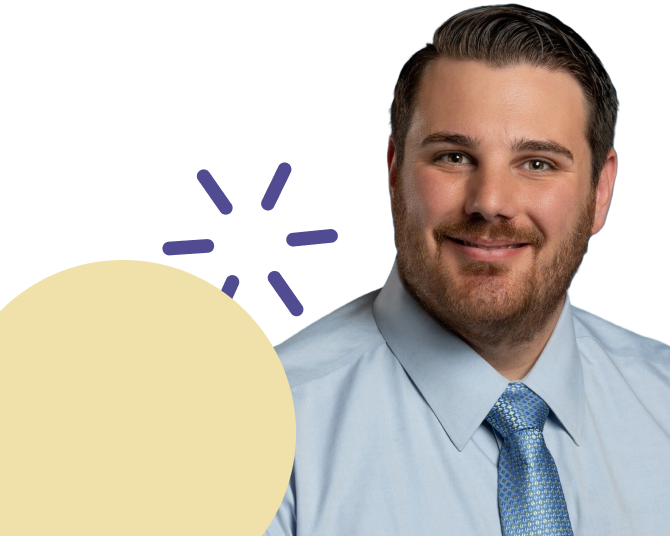
Most Prescribed ADHD Medications

Attention deficit hyperactivity disorder (ADHD) is a mental health condition associated with inattention, hyperactivity, and impulsive behaviors. According to a systematic review, it affects the lives of 2.58% of adults worldwide. If untreated, ADHD can significantly impact different areas of life, and in severe cases, it can be considered a disability.
Medication is often the first-line choice for ADHD treatment. Below, you will find a detailed review of the most commonly prescribed options, their features, and side effects.

What Is the Most Effective Treatment for ADHD?
ADHD treatment is usually comprehensive and involves a combination of medications, behavioral therapy, and changes in daily routines. The effectiveness of the same approach may vary for different patients, which is why the treatment plans are always personalized.
The choice of interventions depends on the symptoms, their severity, and specific difficulties faced in daily life. However, medications are frequently the first step. They tend to bring effects relatively fast and pave the path for behavioral changes achieved during psychotherapy.
What Is ADHD Medication Supposed to Do?
ADHD can hinder the transfer of information from one neuron to another, which impacts both attention and focus. So, the primary goal of ADHD medication is to increase the efficiency of neurotransmitters. This helps reduce hyperactivity and impulsiveness, enhances focus and concentration, and addresses other symptoms.

Types of ADHD Medication
Stimulant ADHD Medication
Amphetamine Salts
Methylphenidate
Ritalin, Concerta, Methylin, Metadate
Methylphenidate is another stimulant of the central nervous system. It impacts brain chemicals, specifically influencing hyperactivity and impulsiveness. Methylphenidate usually has milder effects compared to amphetamines but still is a potent medicine for ADHD.
| Brand name | Release type | Duration (hours) |
|---|---|---|
| Amphetamine salts | ||
| Adderall | Immediate-release | 4-6 |
| Adderall XR | Extended-release | 10-12 |
| Lisdexamfetamine | ||
| Vyvanse | Extended-release | Up to 14 |
| Dextroamphetamine | ||
| Dexedrine | Immediate-release | 4-6 |
| Dexedrine | Extended-release | 6-8 |
| Methylphenidate | ||
| Ritalin | Immediate-release | 2-5 |
| Ritalin LA | Extended-release | Up to 8 |
| Concerta | Extended-release | 8-12 |
| Metadate ER | Immediate-release | About 8 |
| Metadate CD | Extended-release | About 8 |
| Methylin IR | Immediate-release | 3-4 |
| Methylin ER | Extended-release | About 8 |
| Quillivant XR | Extended-release | Up to 12 |
| Daytrana | Extended-release | Up to 10 |
| Aptensio XR | Extended-release | Up to 12 |
| Dexmethylphenidate | ||
| Focalin | Immediate-release | 2-5 |
| Focalin XR | Extended-release | 8-12 |

Non-stimulant ADHD Medication
Tricyclic Antidepressants
Desipramine (Norpramin), amitriptyline (Elavil, Endep, Vanatrip)
This class of medication is less common compared to some other types of antidepressants. Still, some tricyclics can be prescribed for ADHD to help keep a balance of norepinephrine and serotonin. This effect helps with stress management.
Antidepressants
Selective Norepinephrine Reuptake Inhibitors (SNRI)
Atomoxetine (Strattera), viloxazine (Qelbree)
These medications increase the levels of norepinephrine in the brain. Their primary effects include improved attention and concentration. In addition, they may be helpful if a person has symptoms of depression or anxiety in addition to ADHD.Blood Pressure Medications
Guanfacine (Intuniv), clonidine (Kapvay)
These medications can be prescribed for ADHD for several reasons:
- They may be beneficial for those who do not tolerate stimulants well.
- By influencing alpha-2 receptors in the brain, they can help regulate norepinephrine levels. It helps regulate attention span and impulsiveness.
- Guanfacine affects brain areas responsible for memory and concentration hence improving them.
- Sedative properties or antihypertensives can also be beneficial for managing sleep difficulties and mood swings, including aggression, which sometimes occur as side effects of stimulants.

Immediate-release vs Extended-release Medications
The main difference between immediate-release (IR) and extended-release (ER) formulations is the amount of time needed to release the active ingredients into the body. Immediate-release medications have a quicker onset of action, while extended-release tablets work slower. Both of them have pros and cons, and even the same medication can be produced in different formulations to meet the needs of patients.
In addition and because of working relatively fast, immediate-release medications have a shorter duration of effects. Therefore, they may require more frequent dosing throughout the day. On the other hand, extended-release medications are typically prescribed for less frequent dosing due to their prolonged effects and concentration in the body.
Note that it’s important to follow your healthcare provider’s instructions on the frequency and dosing to minimize the risk of side effects.
The Newest ADHD Medications
Newer ADHD medications include viloxazine (Qelbree), a non-stimulant option. Additionally, there are several new stimulant medications, such as:
- Cotempla: methylphenidate extended-release orally disintegrating tablets
- Adhansia: methylphenidate hydrochloride
- Aptensio XR, Jornay PM: methylphenidate hydrochloride extended-release medication
- Dyanavel XR: amphetamine extended-release oral suspension
- Adzenys XR-ODT: amphetamine
- Mydayis: mixed salts of a single-entity amphetamine product
Side Effects of ADHD Medications
Any medication for ADHD requires a prescription, and the treatment process should be supervised by a healthcare professional. One reason for that is the potential for side effects: these effects vary depending on the class and composition of medication, the dosage, and the patient’s individual response, among other aspects. Moreover, the same medication may cause different adverse effects in different patients with the same diagnosis while some people will not experience any side effects in the same situation. Still, it’s important to be informed about potential effects.
The side effects typically subside in the short term; promptly consult with your healthcare provider if the side effects are severe or prolonged.
Stimul Common Side Effects of Stimulantsants
Side effects of ADHD treatment with stimulants may include the following:
- Insomnia
- Headache
- Stomachache
- Sudden recurrence of ADHD symptoms
- Decreased appetite
- Dry mouth
- Irritability
- Edginess
Common Side Effects of Non-stimulants
Side effects of non-stimulants for ADHD depend on the class of the prescribed medication and other factors. Some common ones include:
- Nausea
- Stomach issues
- Loss of appetite
- Weight loss
- Fatigue
Contact your healthcare provider to learn more about the potential side effects of the specific medication.

- Easy scheduling: Schedule a visit from your couch, any time, no waiting in line!
- Comprehensive visit management: Reschedule or cancel your appointment in a few clicks.
- Plan in advance: No forgetting to schedule that follow-up next month!
- Track your prescription online: Check your prescription status anytime and know when the medication is ready to pick up.
- Switch pharmacies: Your chosen pharmacy doesn't have your medication? Select another one in a minute.
- Save personal details: No need to repeatedly fill out personal and medical information. Just choose a date and time to book a visit.

Side effects can vary from person to person, as individual responses to medications can differ. Non-stimulant medications like atomoxetine (Strattera) and guanfacine (Intuniv) are often considered to have a milder side effect profile compared to stimulant medications. Contact your healthcare provider who will tell you how to treat ADHD in your particular case and what potential side effects you may experience.
Learn more about ADHD
Sources
- The prevalence of adult attention-deficit hyperactivity disorder: A global systematic review and meta-analysis
Source link - The Emerging Neurobiology of Attention Deficit Hyperactivity Disorder: The Key Role of the Prefrontal Association Cortex
Source link - Effect of Psychostimulants on Brain Structure and Function in ADHD: A Qualitative Literature Review of MRI-Based Neuroimaging Studies
Source link - Methylphenidate for attention-deficit disorder in adults: a narrative review
Source link - Using Stimulants for Attention-Deficit Disorder: Clinical Approaches and Challenges
Source link - Atomoxetine and osmotically released methylphenidate for the treatment of attention deficit hyperactivity disorder: acute comparison and differential response
Source link - Evidence-based pharmacological treatment options for ADHD in children and adolescents
Source link
